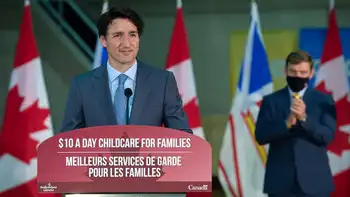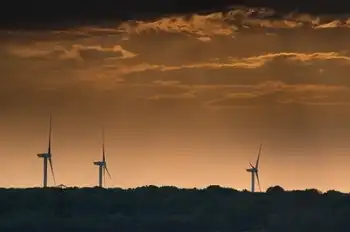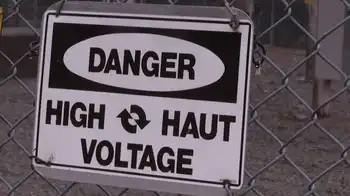Nuclear watchdog debate to urge Iran talks
VIENNA, AUSTRIA - Most members of the U.N. nuclear watchdog's governing board, a barometer of world sentiment on Iran, are likely in a pending debate to champion last-gasp talks to defuse a stand-off over Iran's atomic work, diplomats say.
Weekend talks in which diplomats said Tehran offered to consider temporarily halting uranium enrichment, and U.S. hints of openness to such a compromise, have revived hopes of averting sanctions with the risk of economic and security repercussions.
Most members of the 35-nation International Atomic Energy Agency board were expected to tread cautiously when they debate the Iran nuclear issue now poised on a knife's edge between diplomatic progress and volatile confrontation.
The West believes Iran's fledgling nuclear program, which Tehran says is just to generate electricity, is a veiled attempt to produce atom bombs and has condemned its disregard of an August 31 U.N. Security Council deadline to stop enriching uranium.
Washington said it and five other world powers expected to start considering steps toward sanctions against Iran in the Council. Iran remained defiant, suggesting it could bar all IAEA inspectors if hit with sanctions.
Iran still rejects suspending enrichment before negotiations to implement an offer of trade benefits from the six powers.
But indications of flexibility on timing of a suspension that emerged from the weekend talks in Vienna between Iranian negotiator Ali Larijani and European Union foreign policy chief Javier Solana appeared to have taken the steam out of the U.S. push for swift punitive action in the Security Council.
Diplomats at the IAEA board said most statements planned for the pending debate on Iran would probably stress the value of a diplomatic solution given widespread reluctance to isolate the world's No. 4 oil exporter and Middle East strategic giant.
"Nobody wants to provoke anybody. Low-key statements are expected, calling on Iran to seize this negotiating opportunity, not much more," said a diplomat from one of the "EU3" powers - Germany, France, Britain - at the forefront of Iran diplomacy.
He said the EU3 statement would be "very, very balanced" and that "some attempts to sharpen the language failed in the end".
It was unclear whether the six powers would speak as one at the IAEA as Russia and China, while also saying Iran must not be allowed to acquire atom bombs and must prove to the world it is not trying to do so, have opposed U.S. pressure for sanctions.
"We may still get strong statements from the United States and Iran. But the dialogue of real consequence is going on elsewhere - and given the stakes, none of the players here are going to make any friends in their respective capitals by saying anything rash," a senior IAEA diplomat told Reuters.
Board members from the Non-Aligned Movement that groups developing nations including Iran, were likely to stress its right to a domestic nuclear fuel industry but also encourage Iran more than before to cooperate to find a peaceful solution.
U.S. Secretary of State Condoleezza Rice held out the possibility that Washington might join talks with Iran if it temporarily suspends its nuclear program.
She chose not to flatly reject talk of a two-month enrichment freeze by Tehran, suggesting Washington is looking for a way to begin negotiations as long as Iran meets its bedrock condition by suspending uranium enrichment first.
"If there is a suspension, we can have discussions but there has to be a suspension," Rice told reporters.
Previously, the United States has said Iran must suspend nuclear enrichment-related work throughout any negotiations.
The text of Iran's August 22 reply to the incentives offer from the five permanent Council members - the United States, Britain, France, Russia and China - made public left room for a possible suspension but was not conclusive.
It also set terms that are likely non-starters for the West, such as cancellation of Security Council involvement in Iran's case and a final halt to IAEA investigation if no proof of an arms program has been found. None has so far.
Related News

Berlin Launches Electric Flying Ferry
BERLIN - Berlin has taken a groundbreaking step toward sustainable urban mobility with the introduction of its innovative flying electric ferry. This pioneering vessel, designed to revolutionize water-based transportation, represents a significant leap forward in eco-friendly travel options and reflects the city’s commitment to addressing climate change while enhancing urban mobility.
A New Era of Urban Transport
The flying electric ferry, part of a broader initiative to modernize transportation in Berlin, showcases cutting-edge technology aimed at reducing carbon emissions and improving efficiency in urban transit. Equipped with advanced electric propulsion systems, the ferry operates quietly and emits zero emissions during…




